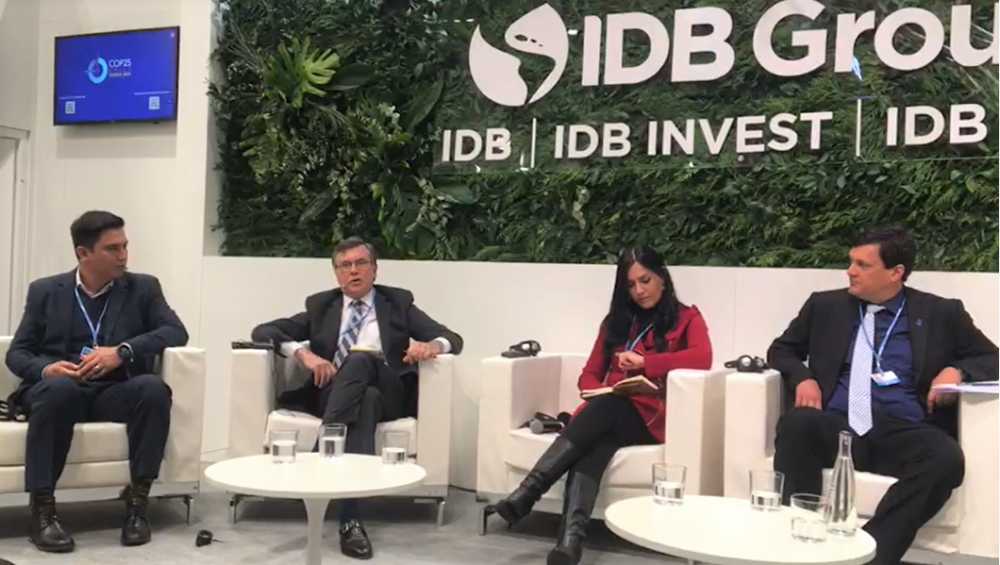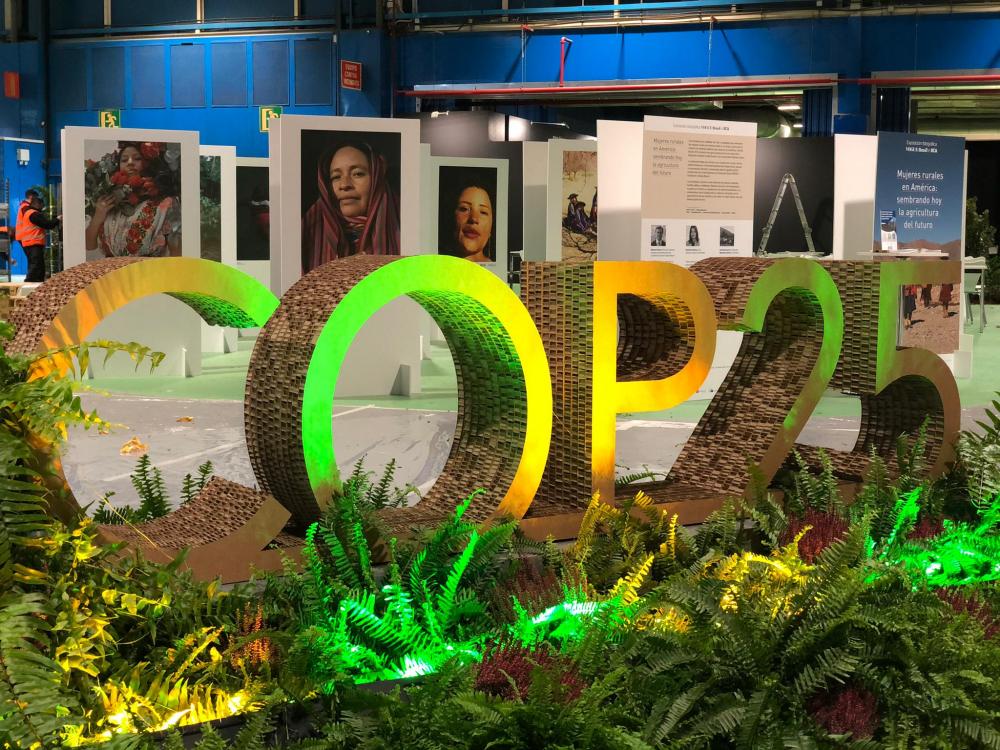IICA maintains that tackling climate change requires decisive inter-sectoral action

San Jose, 13 December 2019 (IICA). According to Manuel Otero, Director General of IICA, tackling climate change and boosting resilience to extreme climate events will necessitate a clear inter-sectoral approach with the decisive participation of the agriculture, environmental and social sectors, among other stakeholders, as well as strong intervention by civil society and the private sector. His remarks were made during the Conference of the Parties to the UN Framework Convention on Climate Change (COP25), which is working on this issue.
Otero, who headed the delegation from the Inter-American Institute for Cooperation on Agriculture (IICA) to COP25 in Madrid, Spain, which ended on 13 December, was one of the speakers at an event organized by the Inter-American Development Bank (IDB) and the International Center for Tropical Agriculture (CIAT), in collaboration with CGIAR.
Addressing the panel of government officials and global business sector leaders, Otero argued that, “Tackling climate change is not solely the responsibility of Ministries of Agriculture. It should be undertaken using a clear inter-ministerial approach, and requires more than State action. Civil society and the private sector should also play an important role.
“Climate change transcends borders”, said Otero, “and thus calls for a supranational approach. It also requires early warning systems that will allow us to anticipate effects and to increase resilience in the production sectors, instead of having to act solely to deal with the consequences”.
IICA’s Director General urged participants to rethink the role of research institutions linked to the agriculture sector to ensure that the environmental dimension is incorporated into their work. He also urged them to redefine extension strategies, to ensure that the promotion of territorial development includes best practices in relation to climate change.

According to Otero, “Sustainable and low-carbon agriculture that infuses the latest technology can alter the equation in development models. Rural young people must be assisted and empowered to ensure that they are the first to adopt new technologies”.
During COP25, he stressed that agriculture has the opportunity to be part of the solution to climate change and confirmed IICA’s willingness to work with those countries and blocks of countries that have taken this challenge seriously.
“This is not just a fleeting matter. We have to incorporate this issue into the agendas of the countries”, he said.
The IICA delegation to COP25 was made up of Otero; Federico Villarreal, Director of Technical Cooperation; Gabriel Rodríguez, Manager of the Project Management Unit; Karen Montiel, Manager of the Climate Change, Natural Resources and Management of Production Risks Program; and Kathya Fajardo, a Specialist in the Program.
The delegation also included the team from IICA’s Permanent Office for Europe, coordinated by Soraya Villarroya. In collaboration with partners, the team also organized the photo exhibition “Rural Women in the Americas: Cultivating Tomorrow’s Agriculture Today”, which was displayed in the Green Zone at COP and was seen by some 15,000 people.
More information:
Institutional Communication Division.
comunicacion.institucional@